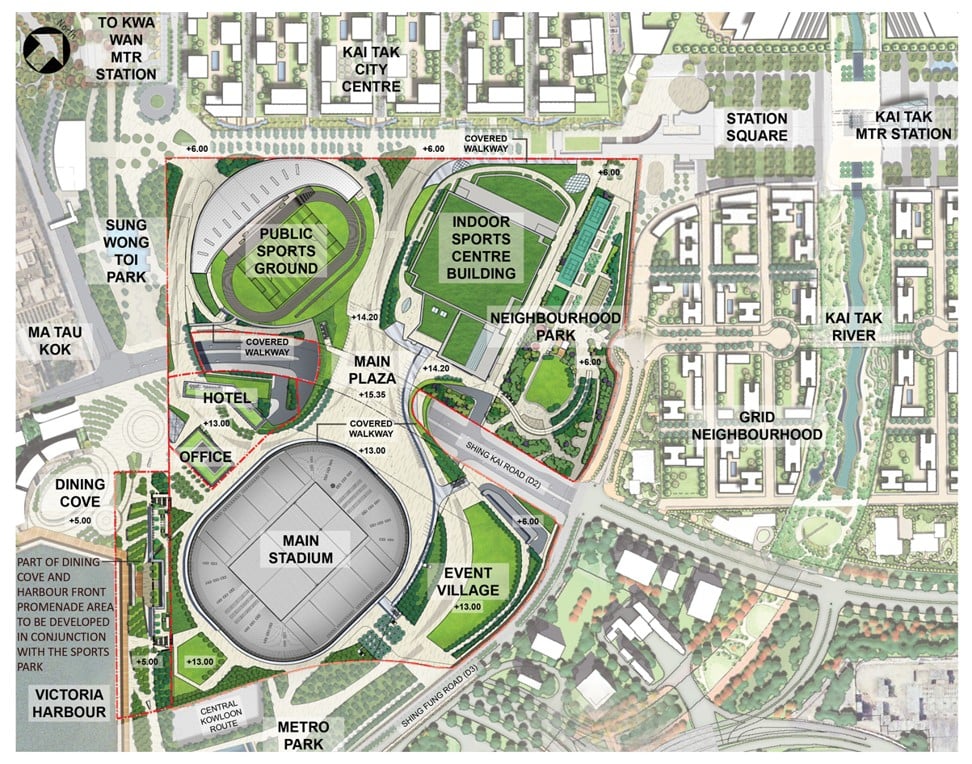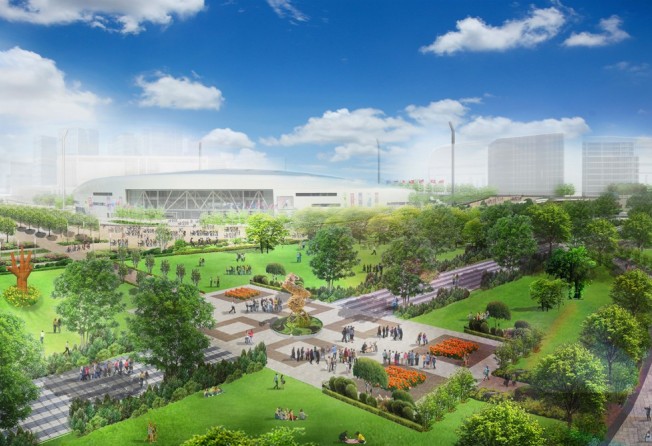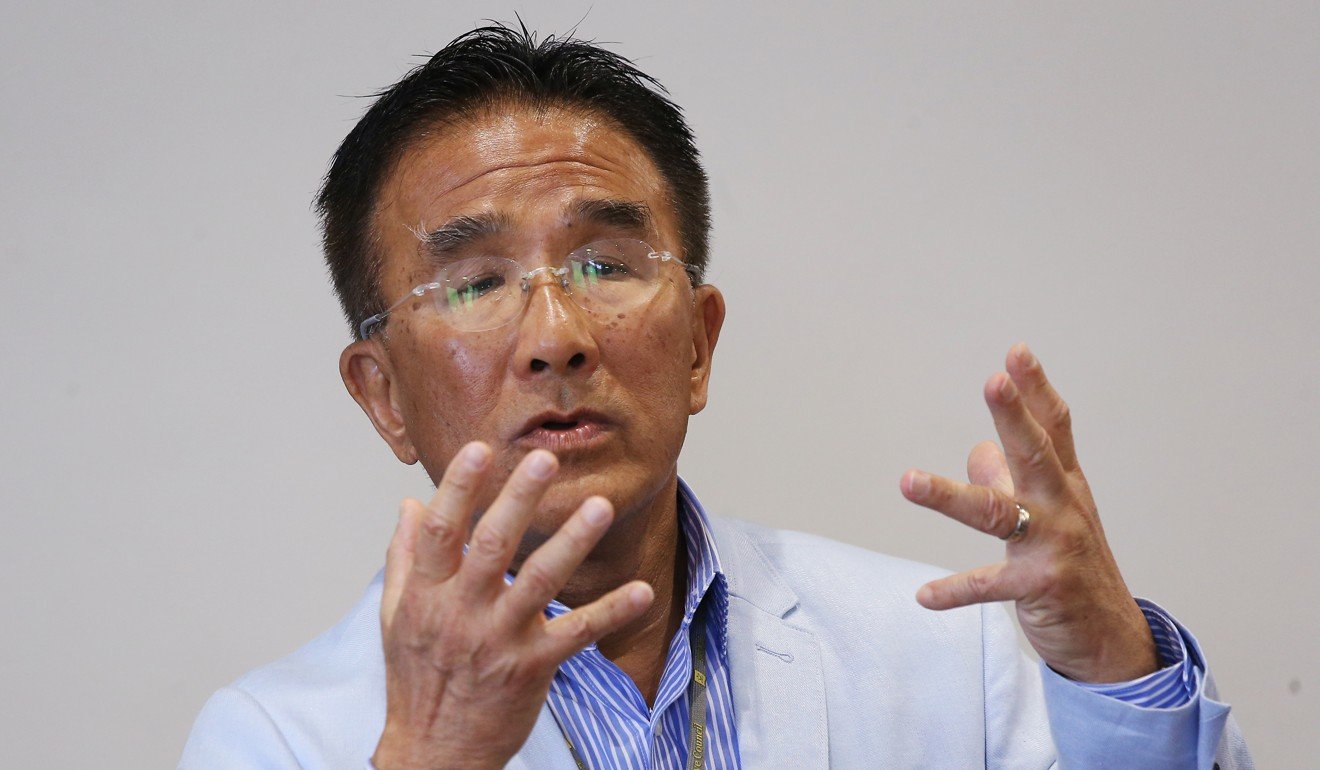
Politicians slam plans to give HK$60m ‘cashback’ to unsuccessful bidders for Kai Tak Sports Park
Home Affairs Bureau argues that complex project requires a bid incentive scheme to attract the requisite number of high-quality tenders

A proposal to give up to HK$60 million ‘cashback’ to rejected tenders for the Kai Tak Sports Park has been criticised by Hong Kong lawmakers, with one likening the HK$32 billion project to a “fat piece of meat” surrounded by “wolves and hyenas”.
The Home Affairs Bureau is seeking approval for HK$31.9 billion in funding from the government for the long-delayed project on the site of the former airport.
The government will pay for construction, but a tender winner from the private sector will be responsible to design, build and operate (DBO) it under a 25-year contract.
Unsuccessful bidders will receive 50 per cent of the cost of their bid back, up to HK$60 million, with the government taking the intellectual property of their designs in return.
At an ongoing meeting of the Public Works Subcommittee on Wednesday, KPMG, the government’s chief consultants on the project, made a 25-minute presentation to Legislative Council members arguing that the project’s complexity and wide-ranging goals meant the bid incentive was necessary to ensure a sufficient number of bidders.
The 28-hectare project incorporates a 50,000-seat stadium, 10,000-seat indoor arena, 5,000-seat public sports ground, retail outlets occupying around 57,000 square metres, a bowling centre with 40 lanes, a health and wellness centre of around 2,500 square metres, a ‘dining cove’ of about 3,000 square metres and eight hectares of public space including a cycle track, park features and playgrounds.
“Bringing these skills together in a single organisation, we don’t believe is possible,” KPMG’s Michael Camerlengo told the meeting. “There are no organisations out there that can handle this by themselves.
“As such, teams with multiple groups are required to come together to make this happen.
“That’s a challenge because it requires a range of groups to trust each other, to bid with each other ... taking on the risk that if they are unsuccessful they will have lost a lot of money. As such, we believe bid incentive is a key aspect to help resolve that challenge.”
Camerlengo added that the project was “one of the largest projects in the world, if not [the largest] at the current time” and estimated tender costs between HK$100 million to HK$200 million.
The consultants told the meeting that nine different approaches to funding the development and operation of the project had been considered and the DBO model had been determined to fit the government’s needs with the least risk.
“If the [incentive] scheme can help us get a good cook, that’s okay, my concern is that for HK$30 billion we want a feast but will just get fried noodles,” said New People’s Party lawmaker Michael Tien Puk-sun, an outspoken critic of the project. In the first meeting of the committee on Saturday he likened the government’s plans for it and the West Kowloon Cultural District to “unequal treaties” signed by China under pressure from colonial powers.
He said the government should demand a guarantee of cash from the eventual operator instead of a revenue-sharing agreement and that the incentive scheme meant the government was “protecting bidders like a very good parent”.
Camerlengo said there would be a “performance bond” in place to keep the operator “honest”.

The bureau estimated the project would make an average profit of around HK$200 million per year in its first five years. Democratic Party lawmaker Lam Cheuk-ting said “it was very puzzling” that the bureau thought it would be difficult to attract bidders.
Labour Party lawmaker Dr Fernando Cheung Chiu-hung claimed the government knew “nothing” and was being “led by the nose” by the 26 consultants listed on the project’s website. “There’s many hyenas and wolves looking at this fat piece of meat,” he said.
There’s many hyenas and wolves looking at this fat piece of meat
Civic Party lawmaker Kwok Ka-ki argued that the entire sports component of the project was simply window dressing to provide profits for developers and retailers.
“We should have a sports park but definitely not this kind of approach – the entire approach will just be a repeat of what the government has done at the expense of Hong Kong people ... ‘sport’ is just there in name only ... the most important thing for this will be to make profit, so sport will take a back seat.”
Defending the project, home affairs permanent secretary Betty Fung Ching Suk-yee and commissioner for sports Yeung Tak-keung rejected such criticisms and said a strict audit system would be in place to evaluate how much rejected bids had cost.
The meeting continues next Wednesday, with the bureau hoping to get its HK$31.9 billion request for funding passed up to the Finance Committee soon. The closing date for prequalification of tenders is June 30.
The bureau hopes to start construction next year and have the project finished by 2022.